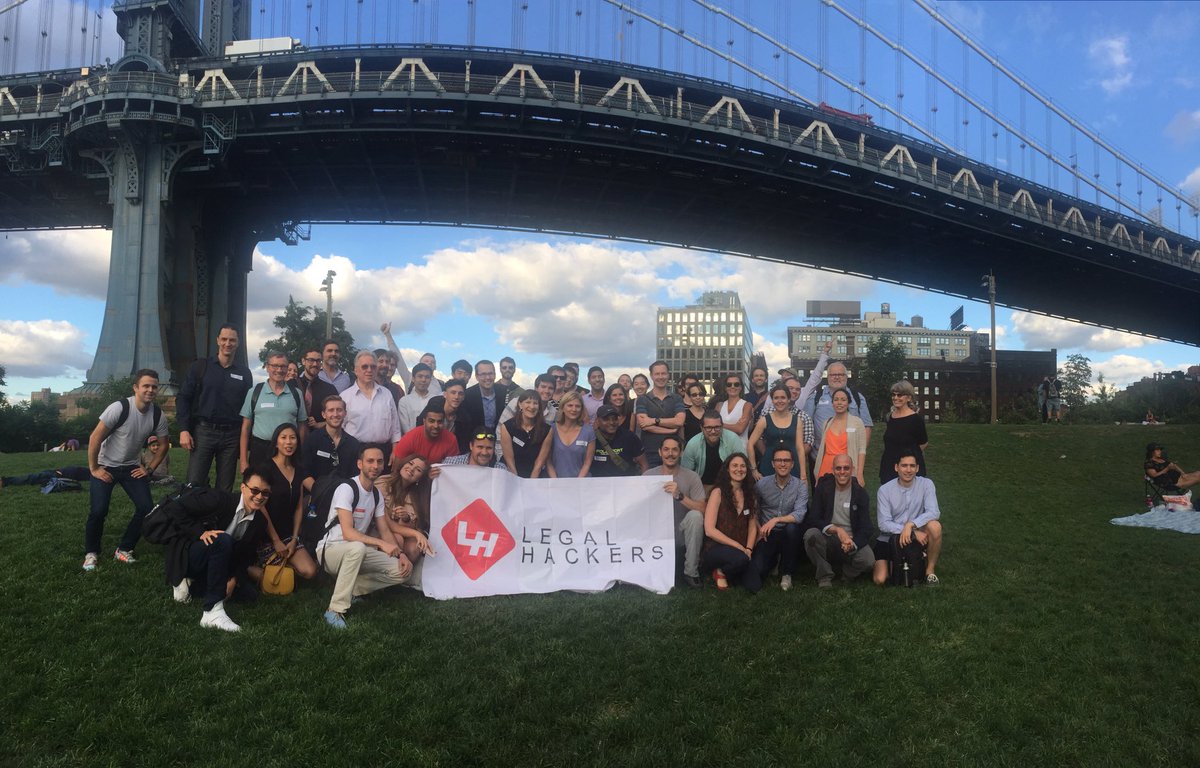Coders, designers, lawyers, policymakers, researchers and students from all over the world will participate in the 2018 Computational Law & Blockchain Festival March 16–18, 2018,
Organized by Legal Hackers with help from partners in blockchain technology, policy and academia, the Computational Law & Blockchain Festival hopes to produce innovative ideas and thoughtful discussions on how blockchain technology can improve legal services.
From Australia to Zimbabwe, volunteers are organizing “nodes” to bring participants together to learn about blockchain technology, participate in blockchain-for-law hackathon challenges and discuss legal policy related to blockchain technology.
The Brooklyn node takes place at B. New York City at the Brooklyn Navy Yard.
RSVPThe global festival distinguishes itself by not only challenging participates to create solutions to legal problems using blockchain technology, but also by encouraging newcomers to learn about the basics of blockchain technology from local experts and inviting policy wonks to voice their concerns over how to regulate blockchain technology or how it could be used to circumvent existing laws.
How exactly could blockchain technology revolutionize the way we implement and interact with the law?
The discussions and projects we expect to see over the weekend will likely revolve around these three major topics:
Smart Contracts
A “smart contract” is essentially a contract written in code, where obligations under the agreement can be triggered and performed automatically.
These self-executing contracts seek to solve some of the typical problems that arise with standard written agreements, such as interpretation and enforcement of provisions, since performance and any consequences under the agreement would be performed automatically. This means less argument over the meaning of an Oxford comma (or lack thereof) and potentially decreased lawyer involvement in everyday contracts, which could give the average person greater access to enforceable legal agreements.
Property Rights Tracking and Transfers
Ownership of intellectual property rights is notoriously difficult to track. The transfer of a copyright, trademark, patent or other intellectual property right from one party to another generally must be shown by a written contract, and it is difficult to prove ownership or any transfer without that written proof. Using blockchain technology’s secure, distributed ledger would make keeping track of what rights are owned by whom and where they originated much easier. Transactions such as the licensing or purchase of a music recording could also be automated using blockchain technology. (Editor’s note: Blockchain startup Ujo Music is one to check out on this front. As is Mediachain, which was acquired by Spotify last spring.)
The purchase and transfer of tangible property that is typically registered with the government could also benefit from blockchain technology. Deeds to land, motor vehicle registrations and pet licenses could be more easily and securely tracked. For example, in many jurisdictions, someone must perform a title search by physically tracing the ownership of land through paper records in the basement of a government building in order to confirm that the seller of the land has the right to sell it to the purchaser. If the ownership and transfer of that land was made publicly available on a secure ledger, then confirming true ownership of the land would take seconds instead of hours.
Governance
Blockchain technology also could solve the challenges many governments face in maintaining and securing public records data. Governments could use blockchain technology for a variety of functions, such as allowing for secure voting, tracking census data, collecting taxes and more. In theory, all of a person’s interactions with the government during his or her lifetime could be securely stored on the blockchain, including issuance of a birth certificate, driver’s license, marriage license and death certificate. Common bureaucratic problems such as extensive and redundant paperwork, lost files, lack of communication between agencies and human error could be reduced or even eliminated.
###
The possibility for blockchain technology to solve a variety of problems related to the law and how we interact with it is endless. We look forward to seeing what innovative proposals and projects result from the Computational Law & Blockchain Festival this weekend.







